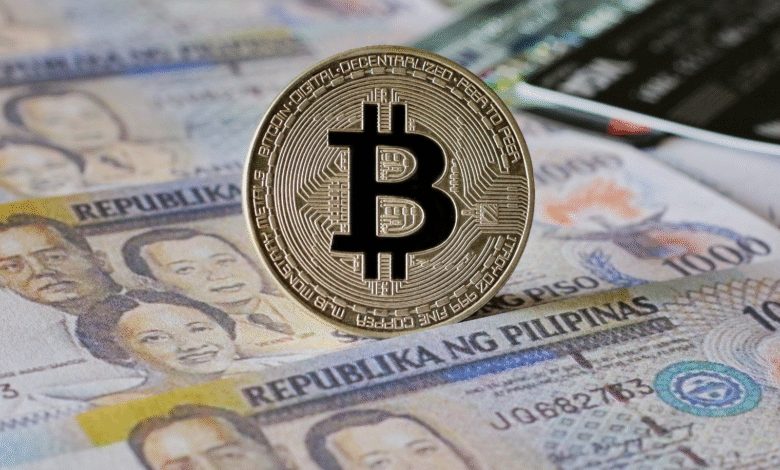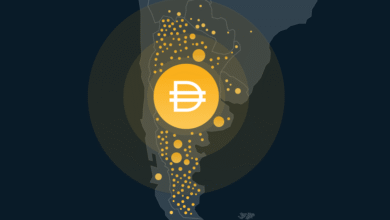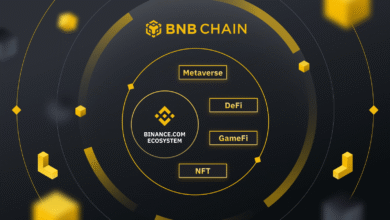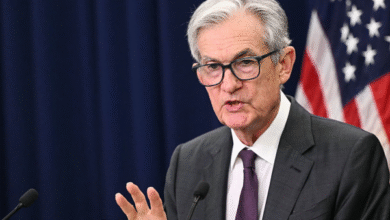Bitcoin Bill in the Philippines Proposes 10K BTC Purchase

The introduction of the Bitcoin Bill in the Philippines marks a pivotal shift in how the nation views digital currency as part of its financial ecosystem. Spearheaded by Representative Miguel Luis R. Villafuerte, House Bill No. 421 seeks to establish a Strategic Bitcoin Reserve in collaboration with the Bangko Sentral ng Pilipinas (BSP), proposing the purchase of 10,000 BTC over five years. This significant legislative action underscores the urgency for the Philippines to diversify its national reserves beyond conventional assets like gold and dollars. By strategically incorporating cryptocurrencies into its financial framework, the bill aims to bolster the country’s economic resilience. As discussions surrounding this innovative proposal unfold, the potential influence on the nation’s financial sovereignty becomes a salient topic of interest for investors and policymakers alike.
The recent proposal to legislate a Bitcoin Reserve in the Philippines opens new avenues for economic strategy within the national finance system. By advocating for the acquisition of digital assets like bitcoin, also known as crypto reserves, lawmakers highlight the increasing relevance of cryptocurrencies in global financial markets. The bill, particularly House Bill No. 421, emphasizes establishing a decentralized network aimed at securing the nation’s assets, while engaging with established financial institutions like the Bangko Sentral ng Pilipinas. As the nation looks to mitigate risks associated with traditional monetary policies, the Strategic Bitcoin Reserve could represent a forward-thinking approach in harnessing the benefits of blockchain technology for public finance. This proposed initiative not only signifies innovation in monetary strategy but also aligns with growing global trends toward the acceptance and integration of digital currencies.
Overview of House Bill No. 421
House Bill No. 421 represents a pivotal step towards integrating bitcoin into the Philippine economic framework. Proposed by Representative Miguel Luis R. Villafuerte, this bill aims to create a Strategic Bitcoin Reserve under the management of Bangko Sentral ng Pilipinas (BSP). The bill highlights the need to secure up to 10,000 BTC for the national reserves, emphasizing the importance of diversifying beyond traditional assets such as gold and the US dollar.
The introduction of House Bill No. 421 marks a significant legislative effort to enhance financial stability in the Philippines amid a rapidly evolving digital currency landscape. It proposes an acquisition strategy of buying 2,000 BTC annually over the next five years, reflecting a forward-thinking approach to fiscal management and economic resilience.
The Importance of a Strategic Bitcoin Reserve
Establishing a Strategic Bitcoin Reserve is seen as a vital maneuver to ensure the Philippines maintains its economic sovereignty. By diversifying its reserves to include bitcoin, the government positions itself to harness potential growth in the value of this digital asset, especially as global demand for cryptocurrencies surges. The fixed supply of bitcoin, along with its decentralized nature, could serve as a hedge against inflationary pressures faced by traditional fiat currencies.
Moreover, the proposed reserve will not only bolster national financial security but also position the Philippines as a progressive player in the global cryptocurrency economy. As several nations begin to integrate digital currencies into their monetary policies, having a structured framework for bitcoin reserves can pave the way for future innovations and attract foreign investments.
Challenges and Considerations for Bitcoin Adoption
While the initiative to create a bitcoin reserve is groundbreaking, it is not without challenges. Price volatility remains a primary concern; fluctuations in bitcoin’s market value could lead to significant risks for national financial stability. Critics argue that such risks could outweigh the potential benefits, leading to calls for a more cautious approach to cryptocurrency investment.
Furthermore, regulatory challenges could arise as the Philippines navigates the legal landscape surrounding cryptocurrencies. Ensuring compliance with both local and international regulations will be crucial for the successful implementation of House Bill No. 421. The BSP will have to collaborate with various government sectors to address these challenges effectively.
Bangko Sentral ng Pilipinas and Its Role in the New Bill
The involvement of the Bangko Sentral ng Pilipinas (BSP) is pivotal in the implementation of House Bill No. 421. As the central bank of the country, the BSP will be responsible for managing the Strategic Bitcoin Reserve. This includes the acquisition of the proposed 10,000 BTC and overseeing the decentralized custody network that is to be established across the Philippines.
The BSP’s expertise in financial management will be crucial to ensure that the assets are safeguarded and that a transparent storage system is put in place. Regular public audits and reports will foster transparency, allowing the Philippine populace to remain informed about the management and performance of the bitcoin reserves.
Future Prospects of Bitcoin in the Philippines
Looking ahead, the potential impacts of the Strategic Bitcoin Reserve on the Philippine economy could be profound. If implemented successfully, this initiative could enhance the country’s financial stability and sovereignty during volatile economic times. The potential for bitcoin as both a reserve asset and a tool for economic development can spur innovation and attract investments into the digital economy.
Additionally, the proposed bitcoin reserve could inspire confidence among citizens and investors by showcasing the government’s commitment to embracing technological advancements. As more Filipinos gain familiarity with cryptocurrencies, the adoption of digital assets in everyday transactions may increase, leading to a more resilient and technologically forward financial ecosystem.
Public Reception of House Bill No. 421
The public reception to House Bill No. 421 has been mixed. While many see it as a leap forward in financial innovation and a step away from traditional asset management, others express skepticism regarding the viability of investing in bitcoin amidst its notorious price volatility. Supporters argue that the long-term benefits of establishing a bitcoin reserve will far outweigh any short-term fluctuations.
Community discussions and stakeholder engagements have highlighted the various perspectives on the bill. Advocates point to the fixed supply of bitcoin, which mitigates inflation risks, as a strong argument for the government’s forward-thinking approach. However, critics stress the need for protective measures to minimize exposure to drastic market changes and ensure fiscal responsibility.
Legislative Journey of House Bill No. 421
House Bill No. 421’s legislative journey began with its introduction in June 2025, marking a significant moment in the intersection of politics and digital currency in the Philippines. Since its first reading on July 29, 2025, the bill has garnered attention in the Committee on Banks and Financial Intermediaries, where it will be debated and refined. The outcome of this legislative process will set a precedent for how digital assets are integrated into the financial system.
The deliberation process involves assessing various factors, including economic implications, legal frameworks, and technological considerations. As lawmakers engage in discussions, feedback from financial experts, and the public will likely influence amendments to strengthen the bill and address potential concerns raised during the hearings.
Bitcoin’s Fixed Supply as an Economic Safeguard
One of the intrinsic characteristics that make bitcoin an appealing asset for national reserves is its fixed supply capped at 21 million coins. This feature positions it as a hedge against inflation, particularly in economies susceptible to currency devaluation. With global inflation rates fluctuating, the potential long-term appreciation of bitcoin could serve to protect national assets from these economic challenges.
Supporters emphasize that contrasting bitcoin with traditional fiat currencies, which can be printed at will, highlights its utility as a safeguard. By including bitcoin in the Strategic Reserve, the Philippines would not only diversify its assets but also protect its economy against inflationary trends that could undermine financial stability.
The Role of Strategic Partnerships in Implementing the Bitcoin Reserve
Implementing House Bill No. 421 will also depend heavily on forming strategic partnerships among key stakeholders. The collaboration between various government agencies, such as the Department of Finance and the Department of Information and Communications Technology, will be essential for establishing a robust bitcoin custody network. These partnerships will ensure that the infrastructure required for managing the Strategic Bitcoin Reserve is effectively developed and maintained.
Moreover, engaging with private sector players and fintech companies can foster innovation and provide valuable technological insights. By leveraging expertise from the growing cryptocurrency ecosystem, the Philippines can build a resilient framework for managing its bitcoin assets while staying competitive in the global digital economy.
Frequently Asked Questions
What is the Bitcoin Bill in the Philippines proposing?
The Bitcoin Bill in the Philippines, officially known as House Bill No. 421, proposes to create a Strategic Bitcoin Reserve managed by the Bangko Sentral ng Pilipinas (BSP), with plans to buy up to 10,000 BTC over five years to enhance economic sovereignty and financial resilience.
How will the Philippines’ bitcoin reserve work under House Bill No. 421?
Under House Bill No. 421, the BSP will establish a Strategic Bitcoin Reserve, acquiring 2,000 BTC annually for five years, held in a decentralized custody network to secure the national reserve for 20 years.
Who introduced the Bitcoin Bill in the Philippines?
The Bitcoin Bill in the Philippines, or House Bill No. 421, was introduced by Representative Miguel Luis R. Villafuerte on June 30, 2025, aiming to integrate bitcoin into national financial strategies.
What is the role of the Bangko Sentral ng Pilipinas in the Bitcoin Bill?
The Bangko Sentral ng Pilipinas (BSP) will manage the Strategic Bitcoin Reserve as proposed in the Bitcoin Bill, overseeing the purchase and storage of bitcoin and collaborating with various governmental departments.
What are the financial implications of buying 10K BTC for the Philippines?
Buying 10K BTC as outlined in the Bitcoin Bill may strengthen the Philippines’ financial position against inflation and systemic risks while promoting economic opportunities under the oversight of the BSP.
What are the criticisms surrounding the Bitcoin Bill in the Philippines?
Critics of the Bitcoin Bill argue about potential price volatility and regulatory challenges associated with bitcoin, suggesting that these factors could impact the long-term feasibility of the proposed Strategic Bitcoin Reserve.
How does the Bitcoin Bill protect property rights in the Philippines?
The Bitcoin Bill includes provisions that protect private property rights by prohibiting the confiscation of legally owned bitcoin, safeguarding the ability of individuals to acquire, use, and transfer BTC.
How frequently will the Bangko Sentral ng Pilipinas report on the Bitcoin reserve?
The Bangko Sentral ng Pilipinas is required to publish quarterly public reports regarding the Strategic Bitcoin Reserve, ensuring transparency and third-party auditing of the bitcoin holdings.
What strategic benefits does the Bitcoin Bill aim to create for the Philippines?
The Bitcoin Bill aims to enhance the Philippines’ economic sovereignty, safeguard against inflation, and leverage bitcoin’s decentralized nature to mitigate financial risks globally as part of a broader economic strategy.
How does the Strategic Bitcoin Reserve improve financial resilience for the Philippines?
By establishing the Strategic Bitcoin Reserve, the Philippines aims to diversify its reserves beyond dollars and gold, positioning itself to capitalize on the growing importance of bitcoin in maintaining financial resilience.
| Key Point | Details |
|---|---|
| House Bill No. 421 | Introduced by Representative Miguel Luis R. Villafuerte on June 30, 2025. |
| Strategic Bitcoin Reserve | Proposes purchasing up to 10,000 BTC for national reserves, managed by the Bangko Sentral ng Pilipinas. |
| Acquisition Timeline | 2,000 BTC to be purchased annually over five years. |
| Cold Storage Network | Establishment of decentralized bitcoin storage facilities across the Philippines. |
| Public Oversight | Quarterly public reporting to be audited by a third party. |
| Support and Criticism | Supporters argue for BTC’s protection against inflation; critics express concerns about volatility and regulation. |
| Legal Protections | Bill prohibits confiscation of legally owned bitcoin and reinforces property rights. |
Summary
The Bitcoin Bill in the Philippines represents a pioneering step towards financial innovation in the country. This significant legislation proposes creating a Strategic Bitcoin Reserve, spearheaded by the Bangko Sentral ng Pilipinas, to bolster economic sovereignty and resilience. By allowing for the structured acquisition of 10,000 BTC, this move highlights the Philippines’ proactive approach to integrating cryptocurrency into its national financial strategy, ensuring the country adapts to the evolving landscape of global finance.




